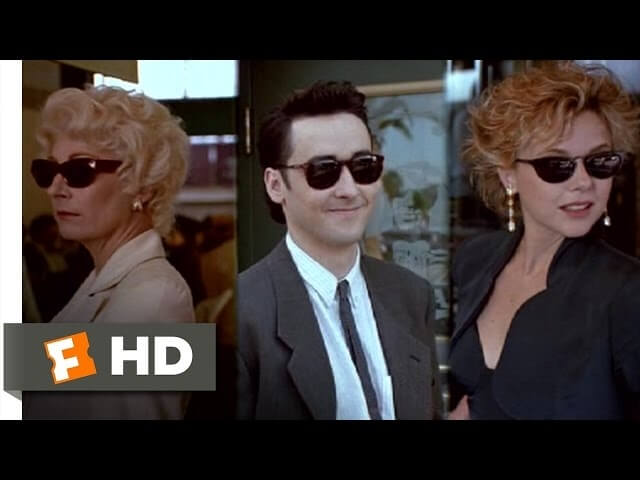What’s crime without passion, even if it involves a son pining for his own mother?

Every day, Watch This offers staff recommendations inspired by a new movie coming out that week. This week: Just in time for The Family, starring Robert De Niro as a mobster who enters the Witness Protection Program with his wife and kids, we’re recommending five tales of crime and kinship.
The Grifters (1990)
Stephen Frears’ The Grifters is one of those generally well-regarded films that still never seems to get its proper due. (It didn’t even show up on The A.V. Club’s list of the 50 best films of the ’90s—obviously a clerical error.) Maybe Frears simply isn’t revered enough an auteur, or maybe the pulpy artifice of the material is just too artificial for some, but there’s no denying the level of craftsmanship on display. The actors—particularly Anjelica Huston, Annette Bening, and Pat Hingle—give superbly stylized performances. Donald E. Westlake’s screenplay (adapted from the 1963 Jim Thompson novel) is sparkling, flinty gutter poetry, Oliver Stapleton’s lensing is beautifully un-showy (until it needs to be, as in the three-way split-screen that introduces the characters), and Elmer Bernstein’s playfully astringent score is just about perfect—the musical equivalent of touching a battery to the tongue.
What truly sets The Grifters apart, though, is how far it goes with its Oedipal subject matter. Unlike the classic noirs, which had to sublimate their most subversive themes in order to get around the censors, The Grifters is openly and unapologetically about a young man fixated on—and almost certainly in love with—his mother. Accordingly, John Cusack’s Roy is one of the most bottled-up, recessive protagonists imaginable, terrified of betraying the disturbing urges within. Normally, a passive protagonist is death to a movie, but because the alternative to Roy’s inaction is so utterly unthinkable, his passivity becomes on odd source of suspense: Will he go there, or won’t he?
It isn’t too hard to understand Roy’s mother love: With a mom like Huston, who wouldn’t get mixed-up? Her shockingly ruthless Lilly—who can withhold love at one moment, then smother with it the next—is an awesome creation, equal parts Jewish mother and spider-woman. And in her sunglasses, cellophane-tight white dress and matching white hair, she’s both intoxicating and terrifying. (The costumer might almost have been thinking of Melville’s “white” chapter in Moby-Dick.) Above all, though, Lilly is dangerous, like an animal who suddenly goes feral when cornered. By the end of the film, when Roy holds the keys to Lilly’s survival in his sweat-soaked palm, she’s barely even human anymore. “You don’t know what I’d do,” she taunts, circling her boy. “You have no idea. To live.” If you’ve seen the film, you know where this scene goes: for the jugular. It’s a legitimate shocker, and one of the great, iconic movie endings.
Availability: Available for purchase on DVD and Blu-ray. It’s available for streaming via Amazon Instant, Hulu Plus, and Netflix.